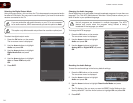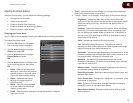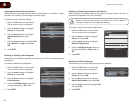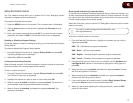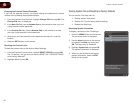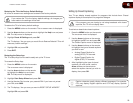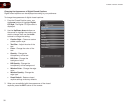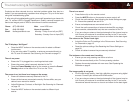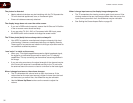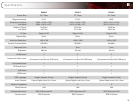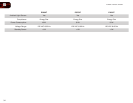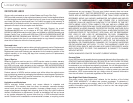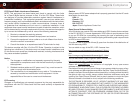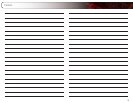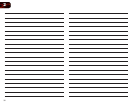
32
A
E320VT / E370VT / E420VT
The picture is distorted.
• Nearby electrical devices may be interfering with the TV. Separate the
TV from electrical appliances, cars, or ourescent lights.
• Ensure all cables are securely attached.
The display image does not cover the entire screen.
• If you are in RGB mode (computer), ensure that H-Size and V-Position
in the on-screen menu are set correctly.
• If you are using TV, AV1, AV2, or Component with 480i input, press
the WIDE button on the remote to change the screen mode.
The TV has pixels (dots) that are always dark or always lit.
• Your HDTV is precision-manufactured using an extremely high level
of technology. However, sometimes pixels may not display correctly.
These types of occurences are inherent to this type of product and do
not constitute a defective product.
I see “noise” or static on the screen.
• When your TV’s digital capabilities exceed a digital broadcast signal,
the signal is up-converted (improved) to match your TV’s display
capabilities. This up-converting can sometimes cause irregularities in
the image.
• If you are using an antenna, the signal strength of the channel may be
low. Ensure your antenna is connected securely to the TV and move
the antenna around the room or close to a window for the best signal.
When I change input source, the volume changes.
• The TV remembers the volume level on each input source. If the
volume level on the new input source is higher or lower than the level
on the source you switch from, the difference may be noticable.
• Use the Volume Up/Down buttons on the remote to adjust the
volume.
When I change input source, the display image changes size.
• The TV remembers the viewing mode on each input source. If the
viewing mode on the new input source differs from the one on the
input source you switch from, the difference may be noticable.
• See
Setting the Screen Aspect Ratio on page 20
.



